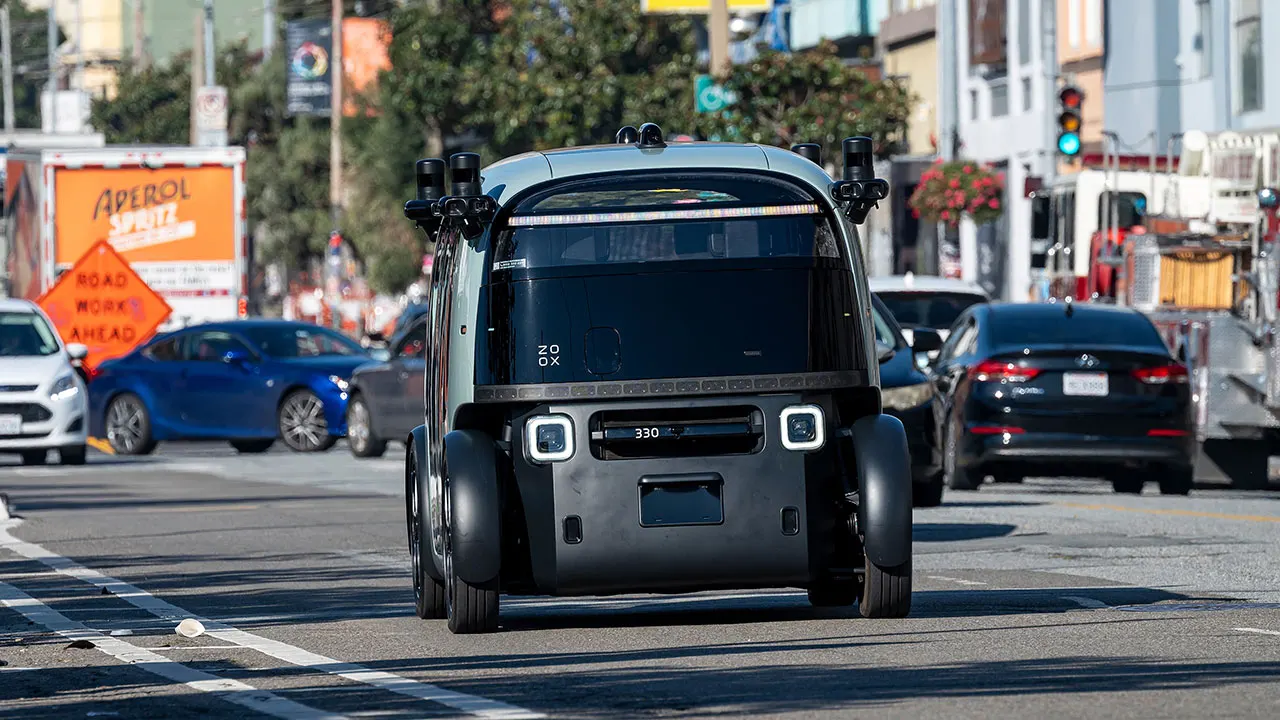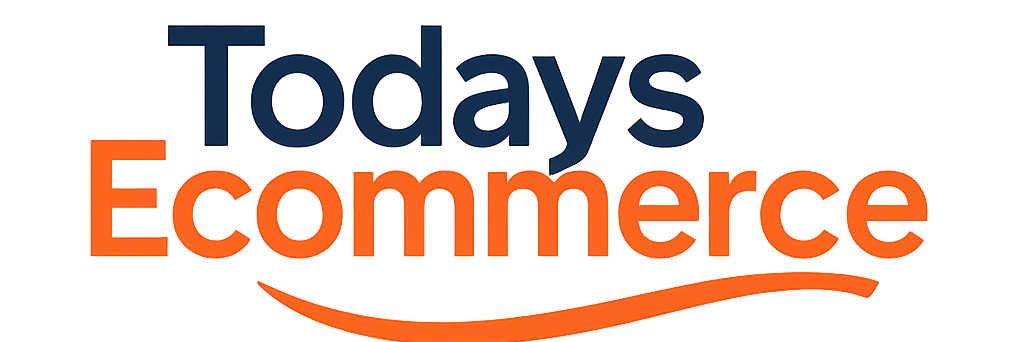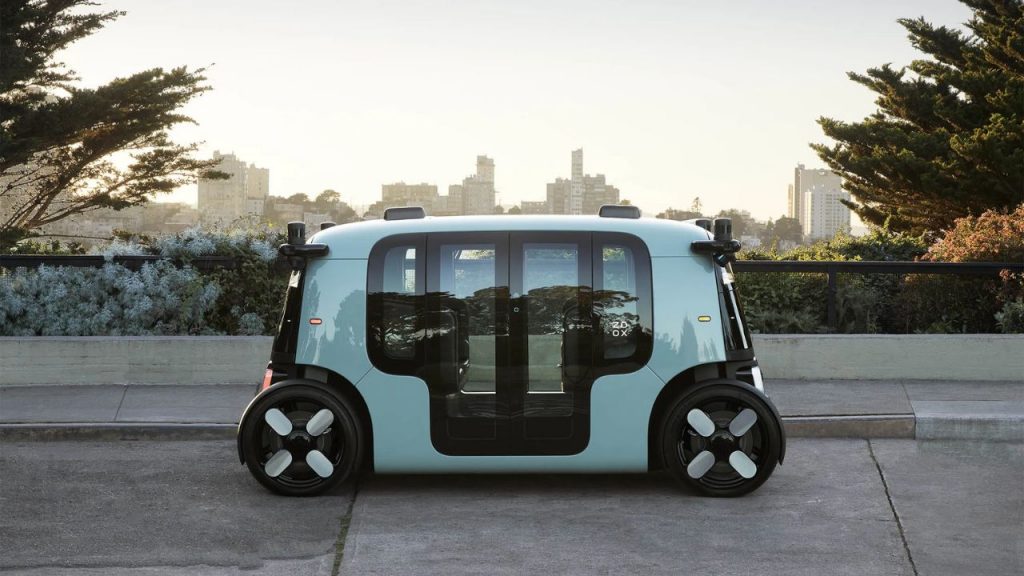Amazon’s autonomous vehicle subsidiary Zoox has encountered another significant safety challenge, issuing its second software recall within a single month following a collision between one of its robotaxis and an electric scooter rider in San Francisco. This latest incident has intensified scrutiny over the readiness of self-driving technology for widespread deployment and raised questions about the safety protocols governing autonomous vehicles on public roads.
The May 8 collision occurred when an unoccupied Zoox robotaxi, traveling at low speed, was struck by an e-scooter rider after the vehicle had braked to yield at a San Francisco intersection. The e-scooter rider sustained minor injuries and fell beside the vehicle, which then continued its turn before stopping without making further contact. Notably, the rider declined medical assistance despite the injuries sustained in the incident.
This crash represents the second major safety incident for Zoox in recent months, following an April 8 collision in Las Vegas where an unoccupied robotaxi struck a passenger vehicle. The Las Vegas incident prompted Zoox’s first software recall of the month, affecting all 270 vehicles in its autonomous fleet. The pattern of consecutive recalls has highlighted persistent challenges in the autonomous vehicle industry, particularly regarding the software’s ability to accurately predict and respond to the movements of other road users.
The recall demonstrates Zoox’s proactive approach to safety management, with the company voluntarily reporting both incidents to the National Highway Traffic Safety Administration and implementing comprehensive software updates across its entire fleet. However, these incidents also underscore the complex technical challenges facing companies racing to commercialize autonomous vehicle technology in urban environments where unpredictable human behavior remains a constant variable.
Technical Issues Behind the Recall
The San Francisco incident exposed a critical flaw in Zoox’s perception tracking system, specifically related to how the vehicle monitors and responds to vulnerable road users such as cyclists and e-scooter riders. The recall addresses a rare but potentially dangerous scenario where the autonomous vehicle could resume movement without properly detecting nearby pedestrians after stopping or moving slowly.
According to Zoox’s report to the NHTSA, the software update enhances the vehicle’s perception tracking capabilities and further mitigates vehicle movement when a vulnerable road user is in close proximity. This technical improvement is crucial because autonomous vehicles that continue operating after contact with pedestrians or cyclists pose significant risks to those involved in the incident.

The company’s investigation revealed that the robotaxi was stationary at the moment of impact, suggesting the collision occurred due to the e-scooter rider’s actions rather than autonomous vehicle malfunction. However, the concern arose from the vehicle’s subsequent movement after the collision, which could have resulted in additional contact with the injured rider.
Regulatory Response and Industry Impact
The NHTSA has acknowledged receipt of Zoox’s recall notice and emphasized the importance of caution around autonomous vehicles, noting that these systems may incorrectly predict the travel paths of cyclists or scooter riders. This regulatory attention reflects growing scrutiny of the autonomous vehicle industry following several high-profile incidents involving self-driving cars and vulnerable road users.
The recall affects 270 vehicles equipped with Zoox’s Automated Driving Systems software, specifically those with versions released prior to May 21. All affected vehicles remain company-owned and are not available for public purchase, as Zoox continues operating in the testing phase on public roads.
Zoox temporarily suspended its on-road operations following the San Francisco incident while conducting a comprehensive review and implementing the software update. Operations resumed only after completing simulation testing and ensuring the updated software addressed the identified safety concerns.
Broader Implications for Autonomous Vehicle Development
These consecutive recalls highlight the iterative nature of autonomous vehicle development, where real-world testing reveals edge cases that laboratory simulations cannot fully anticipate. For Amazon, which acquired Zoox in 2020 for over $1 billion, these incidents represent both technical setbacks and opportunities to demonstrate a commitment to safety and regulatory compliance.
The autonomous vehicle industry continues facing intense competition, with Alphabet’s Waymo already operating commercial robotaxi services in multiple cities, including Phoenix, San Francisco, Los Angeles, and Austin. Tesla has also announced plans to launch robotaxi services, creating pressure on companies like Zoox to accelerate development while maintaining safety standards.
Zoox’s commitment to transparency through voluntary recalls and comprehensive safety reporting may ultimately strengthen public trust in autonomous vehicle technology, even as these incidents highlight the ongoing challenges in achieving fully safe autonomous operation in complex urban environments.

